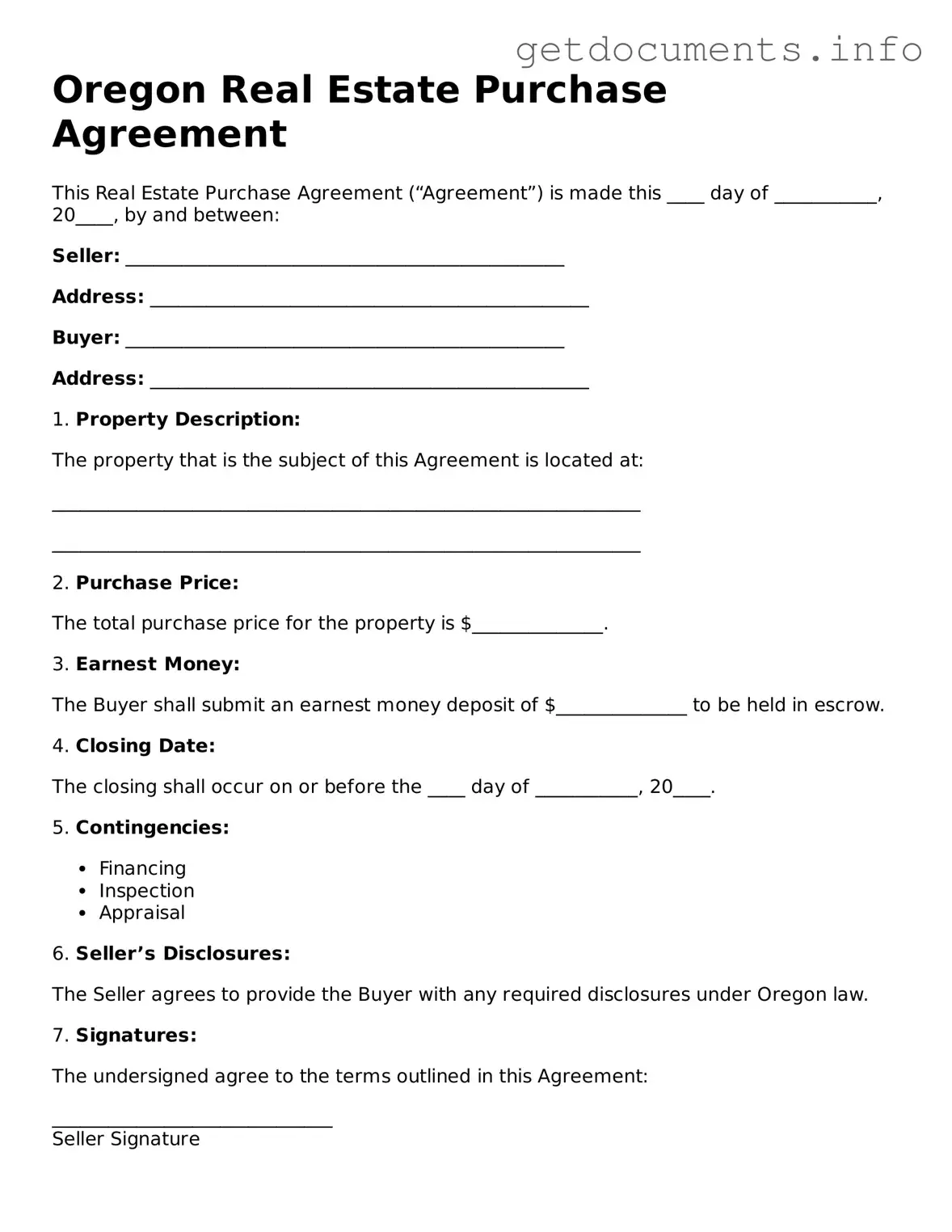Free Real Estate Purchase Agreement Template for Oregon
The Oregon Real Estate Purchase Agreement form is a legal document used to outline the terms and conditions of a property sale in Oregon. This agreement serves as a binding contract between the buyer and seller, detailing important aspects such as purchase price, contingencies, and closing dates. Understanding this form is crucial for a smooth transaction, so consider filling it out by clicking the button below.
Access Real Estate Purchase Agreement Editor

Free Real Estate Purchase Agreement Template for Oregon
Access Real Estate Purchase Agreement Editor
Got places to be? Complete the form fast
Fill out Real Estate Purchase Agreement online and avoid printing or scanning.
Access Real Estate Purchase Agreement Editor
or
⇩ PDF File
